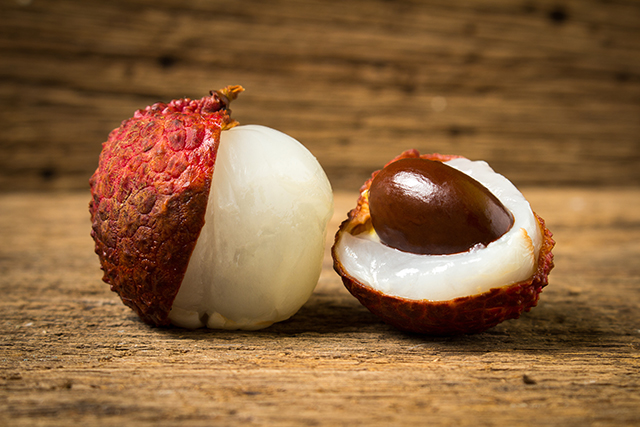
Researchers from the University of Palerno in Italy conducted a comprehensive analysis on the anti-tumor properties of the various parts of lychee. In the study, they reviewed previous research on the anti-tumor compounds that lychee and its different parts contain.
Lychee (Litchi chinensis), also known as Chinese cherry, is a fruit tree that was originally cultivated in China for over 2,300 years and in northern Vietnam, and is now grown in tropical areas globally, including Southeast Asian countries, the Indian subcontinent, and South Africa. Mainly grown in China, India, Thailand, and Vietnam, lychee fruit is not only packed with vitamins, minerals, and others, but can also boost your endurance and workouts.
The researchers found that apart from its pulp, its inedible parts including its skin and seed can inhibit tumor growth. They found that the lychee pulp contains polysaccharides, which have strong antioxidant activity, anti-tumor, and immunomodulatory effects. Moreover, researchers also found that lychees contain polyphenols which are packed with antioxidants and play a role in cancer prevention. The role of polysaccharides in preventing tumor growth was found in in vitro studies of lung adenocarcinoma, cervical cancer, and hepatocellular carcinoma models. Lychee pulp also contains galactose and manose that have anti-tumor effect on gastric, liver, and lung cancers. Moreover, mice studies revealed that its pulp extract prevented liver damage.
The peel, although inedible, contains flavonoids and anthocyanins that exhibit antioxidant properties and anticancer effects. Major flavonoids found in lychee peels are proanthocyanidin B2, proanthocyanidin B4, and epicatechin. This part of lychee was found to potentially prevent the proliferation of breast and liver cancer cells. Studies on mice also revealed that these properties were responsible in tumor mass reduction and apoptosis induction.
The inedible seed of lychee was previously found to be toxic because of the presence of hypoglycin A and MCPG that caused severely low blood sugar and brain inflammation among children in India. Despite this, lychee seed extracts are widely used in China to relieve pain, modulate blood glucose, lower blood lipids, and prevent liver damage. Past studies also discovered that the seed contains antioxidative and antiviral effects. Most studies on the antitumor effects of this part of the seed were attributed to its crude extracts. Lychee seed stopped the proliferation of lung adenocarcinoma; cervical, breast, ovarian, and lung cancers; and hepatocellular, lung, cervical, and colorectal carcinoma. The N-butyl alcohol extract found in the seed was antiproliferative and decreased cell migration and invasion in prostate cancer.
Oligonol and other parts of lychee
One of the most notable findings of the study review is about the lychee extract known as oligonol, which is rich in polyphenols.
“Among the [lychee] components, oligonol deserves particular attention,” the researchers wrote. “Oligonol is a polyphenol-rich [lychee] extract processed to convert the high-molecular weight proanthocyanidins into low-molecular compounds to improve bioavailability.”
In the review, oligonol was found to induce apoptosis, inhibit colonic adenoma formation, inhibit lung metastasis, and suppressed chemically-induced tumorigenesis. Other parts of the lychee, such as its leaf and flower, were also found to have potential anticancer properties.
“Purifying these agents may represent an important step in phyto-pharmacotherapy, which can have a high impact in oncology,” the researchers said. “The knowledge of the biochemical mechanisms underlying the anti-proliferative/death effects of [lychee] components in tumor cells represents an important basis for anticancer translational studies.”
The study was published in the open-access journal Nutrients and was funded by Gruppo Azione Locale of Golfo di Castellammare, Italy.
Sources include:
Please contact us for more information.























